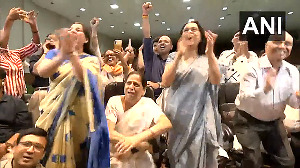 Shifting the focus from the individual to the society, the World Heart Day celebrations this year highlight the theme of creating `heart-healthy environments’. A deep dive into the not-so-obvious linkages between government policies and the high risk factors is offered in the book `Know Your Heart: The Hidden Links Between Your Body and The Politics of the State’, written by senior science journalist, Dinesh C Sharma.
Shifting the focus from the individual to the society, the World Heart Day celebrations this year highlight the theme of creating `heart-healthy environments’. A deep dive into the not-so-obvious linkages between government policies and the high risk factors is offered in the book `Know Your Heart: The Hidden Links Between Your Body and The Politics of the State’, written by senior science journalist, Dinesh C Sharma.
Sharma offers an easy-to-understand view of the heart disease problem in India, and the various non-medical causes. He takes a close look at how government policies and departments which are playing a role in promoting the three major risk factors -- unhealthy food, tobacco and physical inactivity and the causes behind these factors.
Sharma told Upasna Pandey that the way ahead would require higher public awareness and discourse on these factors and building advocacy for reversing such government policies.
Why did you choose this subject and what is the focus of the book? What are the linkages between government policies and heart disease risk factors?
As a science journalist, I have been looking at various health and scientific issues closely and we all know about the medical factors which lead to non-communicable diseases, particularly heart diseases. But I believe that there are various non-medical factors which also play a critical role, which are not obvious to people.
I picked up the three high coronary risk factors of unhealthy diet, tobacco and physical inactivity, which are acknowledged by the World Health Organisation, and decided to examine the linkages with public policies.
For instance, we need to ask why the consumption of processed food that is rich in fats, salt, and sugar is going up; why is tobacco consumption going up, despite a total ban on all forms of advertising and a ban on smoking in public places. We also need to understand why people are becoming physically inactive and being discouraged from using public transport or bicycles.
I have tried to show scientific evidence which can be connected to these trends to establish the unseen connections. It is critical that the public recognises and acknowledges these factors and we have sustained public discourse and advocacy to reverse such policies.
What are the prime government policies which you have highlighted?
We can take the example of tobacco, which I believe is deeply entrenched in our politics. In fact the health ministry has not been moved beyond standard health warnings. My point is that the government must explain why should it runs a Directorate of Tobacco Development or funds research into new varieties of tobacco and gives awards to top cigarette and gutkha makers using taxpayers’ money.
It is ironical that the first public tobacco health hazard warnings were issued in 1975 and the Tobacco Board was set up in the same year.
We need to urge the government to stop subsidising tobacco altogether. While it is fair to expect the private industrial sector to participate in promotion of tobacco, there has to be a question on why the government cannot desist from promoting tobacco completely.
You have also focused on the food processing industry as a factor…
We have a ministry for processed foods and there is blanket promotion and even susbisidation of everything in the name of ultra processing, to include even aerated drinks, as they contain sugar.
The mandate of promoting agriculture has shifted from the farmers to promoting industries which is a cause of concern. The focus is now on removing nutritious constituents of food products, removing bran from rice, for instance.
India, the world's second largest producer of fruits and vegetables, throws away fresh produce worth millions of dollars every year in absence of adequate cold storage facilities and refrigerated transport. Recently, Prime Minister Narendra Modi asked cola giants Pepsico and Coca-Cola to augment fruit sales for Indian farmers by adding fresh fruit juices to their fizzy drinks.
Why are we not talking about increasing intake of fresh fruits and the government can set up a fruit promotion board for this?
Some of the government policies and departments give boost to jobs and push economic progress. How can a balance between pro-health and pro-job scenario be struck by the government?
We need to dispel this misconception that health-promoting policies are anti-business or anti-industry and harm jobs. In fact the bad health of people is hitting the economy as there is a rise in diabetes and heart ailments in people in their most productive age groups. There is loss of productivity due to illness, loss of livelihood apart from high costs of treatment and lifelong medication.
The government needs to take note of these factors as well and then plan policies accordingly.
You have also stressed on linkage between the shift to fast-paced transport and growing physical inactivity and obesity problems, particularly in urban areas…
There are clearly instances of discouragement for individuals to cycle or walk everyday. One small example is that for the Commonwealth Games in Delhi, there were three traffic signals which were removed in Mayur Vihar area alone. This has led to high difficulty for pedestrians and cyclists to use this corridor.
Footpaths are encroached upon and there is clear exclusion of people who don’t have their own transport or use public transport such as metro, to opt for walking or cycling as a norm. What is needed is promotion of cycling and creation of city centres free of cars, like in the West.
We must remember that transport is both a health and economic issue in a developing country such as India.
What is your expectation from the government in view of the various factors cited by the book?
I have analysed reasons behind the upsurge in non-communicable disease. Firstly, we need to acknowledge the problem and the government needs to engage in health audits of all major policies. The government must work on creating a health-promoting environment in which people can make healthy choices.









